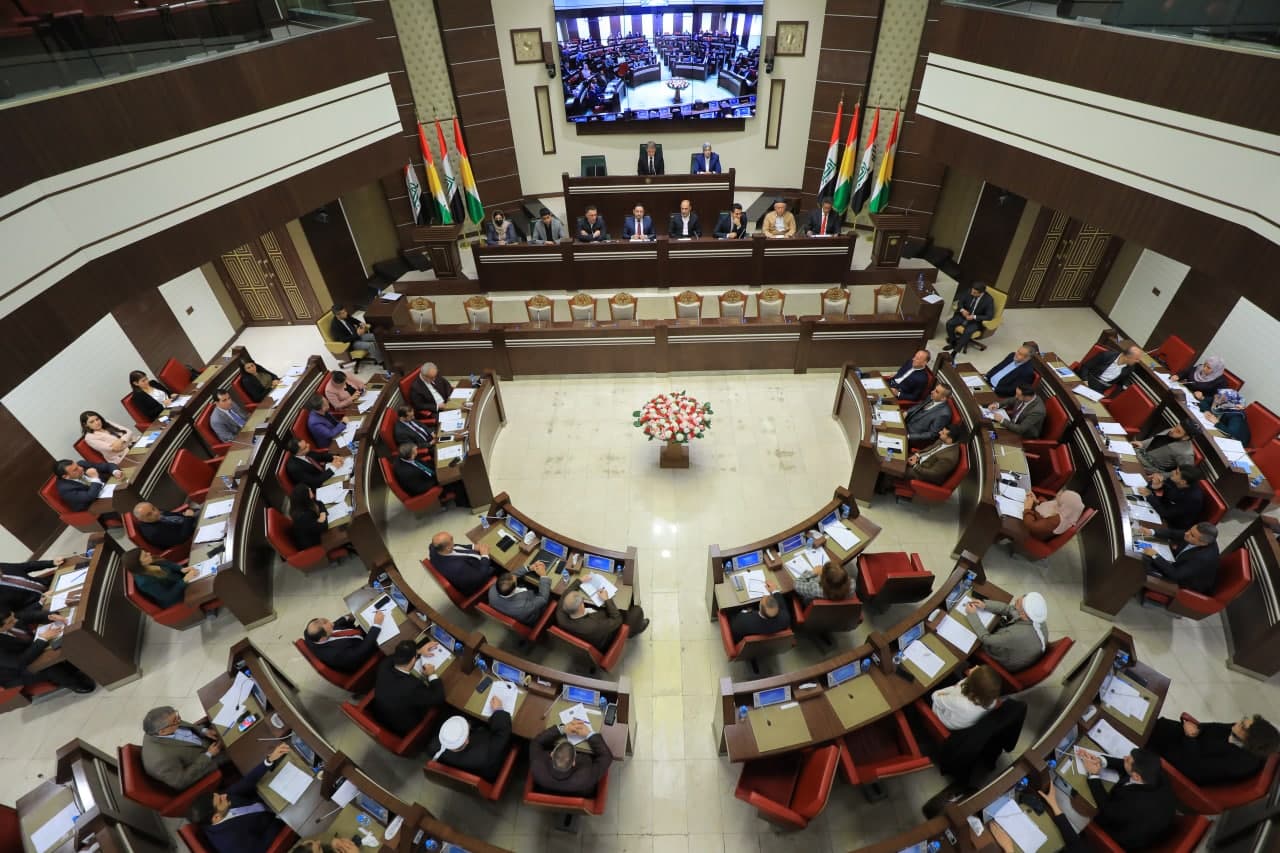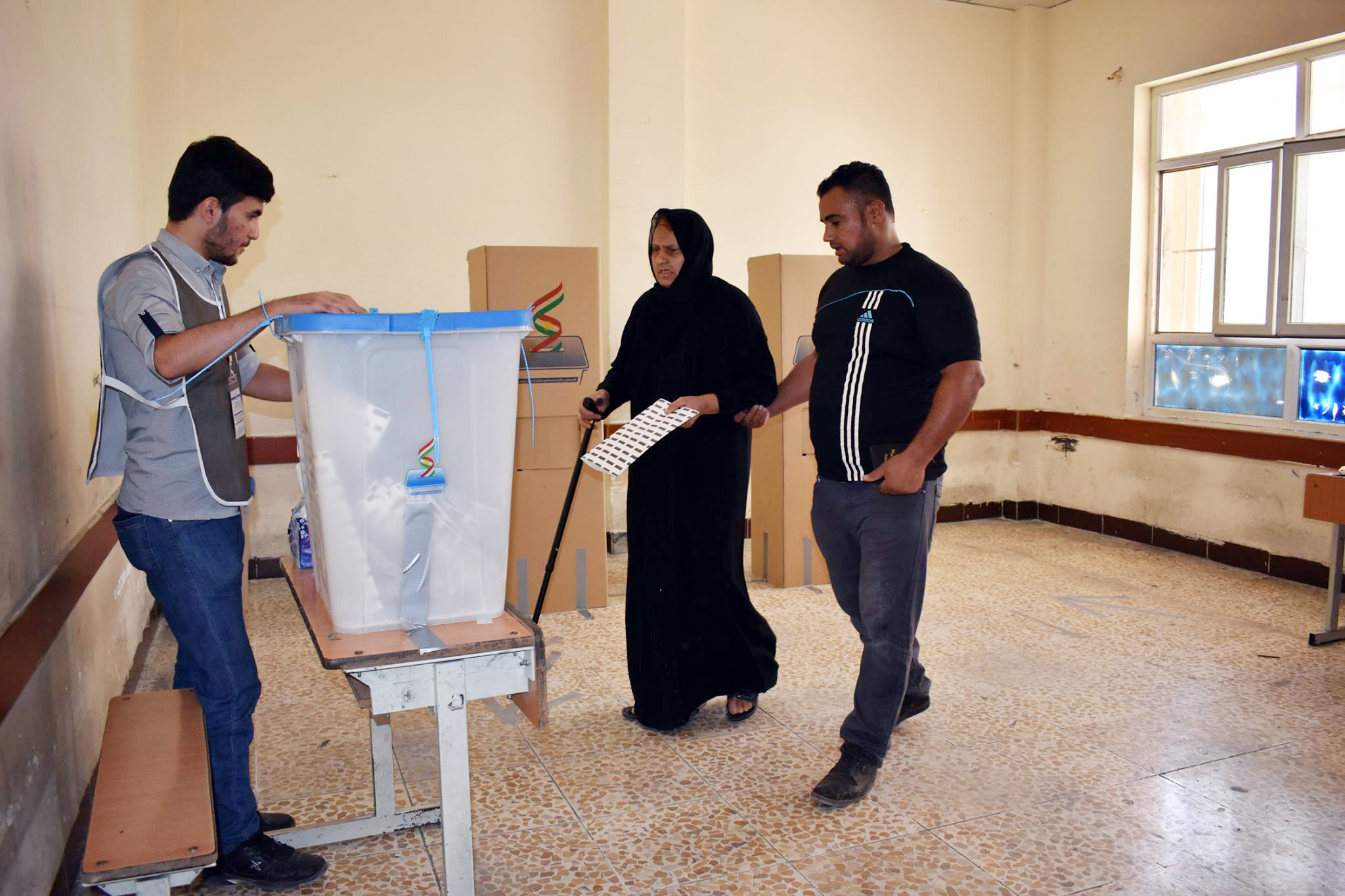The minorities in the Kurdistan Region of Iraq KRI support the adoption of the current single constituency system for the elections of Kurdistan Parliament due on October 1, 2022 and firmly oppose amending the election law because they believe that there are serious efforts to reduce the number of their seats from eleven to eight or six.
The concerns of religious and ethnic minorities coincide with the escalation of the debate between the blocs in the Kurdistan Parliament to change several articles in the election law, but the lack of consensus on these proposals divided those blocs on two fronts.
A number of parliamentary blocs put forward a draft to amend the election law to the presidency of the Kurdistan Parliament, and in return, other blocs, including the Kurdistan Democratic Party KDP bloc and minority blocs, expressed their opposition to these demands.
The main demand of these parties is the necessity of amending the law, and as stated in the statements they issued, they proposed changing the electoral system from one electoral district to four electoral districts.
"We are not with the multi-constituency system, we want the Kurdistan Region to remain a single electoral district because this is in the interest of the minorities and our votes will not be dispersed, then the Christians, most of whom are located in Erbil and Dohuk, will be able to vote for their candidates wherever they are," said Clara Odisho Yaqoub, head of the Chaldean Syriac Assyrian People's Assembly bloc in Iraqi Kurdistan Parliament.
they seek to reduce the number of quota seats from 11 to six or eight
Yaqoub, whose bloc holds a quota seat in parliament, said, "Through amending the law, they seek to reduce the number of quota seats from 11 to six or eight, and this is unacceptable. Rather, the number of quota seats must be increased, not reduced. "
Under the Kurdistan Parliament Elections Law, 11 quota seats were allocated to the minorities out of the 111 parliament seats: five for Christians, five for Turkmens and one seat for Armenians.
"We oppose amending the election law in all forms, because it does not have legal voids and suits the situation in the Kurdistan Region, and there is no time left to make amendments to the law," she confirmed.
In reply to accusation of siding with the KDP, she said, "We are proud of that because the Kurdistan Democratic Party is the only party supports our demands and works for religious coexistence.”
This comes at a time when no parliamentary bloc has expressed its desire to reduce the number of minority quota seats, but there have been criticisms of minority representatives from some members of the parliament, accused them of giving their votes to a certain party at the expense of other parties in some issues within Parliament.
The Kurdistan National Assembly was established in 1992, following the uprising of 1991 which put an end to the rule of Baath party led by Saddam Hussein in the semi-autonomous region.
To date, there have been four region-wide parliament elections in 1992, 2005, 2009, 2013 and 2018. In 2009 the Kurdistan National Assembly was renamed the Kurdistan Parliament. The electoral system is a partially open-list form of proportional representation. Parliamentary elections are held at least every four calendar years. A minimum quota of 30% of seats are reserved for women MPs.

According to the proposed amendments for the Kurdistan Parliament electoral law, the number of quota seats for minorities will remain the same, but they were distributed according to the multiple electoral district system, whereby three seats were allocated for Turkmens out of five for Erbil province and the other two seats for the electoral district in Sulaymaniyah province.
As for the five quota seats for Christians, two seats are allocated for Dohuk province, two other seats for Sulaymaniyah and the last for Erbil, while the quota seat for Armenians is the only one in the electoral district of Dohuk.
Romeo Huzairan Nisan, head of the National Unity Alliance bloc, holds three seats from the quota of Christians, said, "Some parties have projects and plans to reduce the number of quota seats, and we fear that any amendment to the electoral law will harm the components, so it is better not to amend the law for the sixth session of the Kurdistan Parliament elections.”
They do not believe in the components (minorities) and it is our right to have seats in Parliament
“They do not believe in the components (minorities) and it is our right to have seats in Parliament.”
The current efforts to amend the electoral law come after that Nechirvan Barzani, the President of the Kurdistan Region IKRP, set October 1, 2022 for holding the elections for the sixth session of the Parliament of Kurdistan.
"Amendment to the law is not in the interest of the Turkmen and other components, because there are no loopholes in the law and it is very appropriate... The distribution of quota seats to the provinces, as stated in the proposed amendments, is a great injustice against the components," according to Muhammad Sadadin Anwar, head of the Development Turkmen Party.
Sadadin, whose bloc has two seats in the Kurdistan Parliament, says, "We want the whole of Kurdistan to be one electoral district. Multiple districts are not in the interest of the components. The situation here cannot be compared with Iraq, because we have only four provinces and the majority of components are in Erbil and Dohuk."
In the Iraqi Parliament elections, each province was divided into several constituencies and nine quota seats were allocated to minorities out of a total of 329 seats, five of which were for Christians and one seat for each of the Ezidis, Shabaks, Sabean Mandaeans, and Faili Kurds.
"If we form an alliance with the Kurdistan Democratic Party, this will be a normal step. It is our right to choose the party we ally with. We will not enter into alliances with parties that demand a reduction in the number of quota seats for the components, but on the contrary, the number of our seats must be increased," Sadadin added.
The main blocs calling for the amendment of the election law are the Patriotic Union of Kurdistan PUK, Gorran (the Change) Movement, the New Generation Movement, the Kurdistan Justice Group and the Kurdistan Islamic Union KIU, which collectively hold (53) seats, and on the other hand, the KDP and the minorities’ blocs (56) oppose the calls for amendments.
The Yazidi MP in the Kurdistan Democratic bloc, Hadya Murad Haider, told (KirkukNow), "We support the amendments provided it is in the interest of everyone and not against the interests of the components," noting that it is not appropriate to distribute the quota seats to several electoral districts.
“For example, two seats of Christians were allocated to Sulaymaniyah, while the number of Christians in the whole of Sulaymaniyah may not exceed 50 families. On the other hand, two seats were allocated to Dohuk, where the majority of the Ezidis and Christians live.”
The Ezidis do not yet have a quota seat in the Kurdistan Parliament and join blocs of other political parties.
"We are not with the multi-constituency system," says Hadya, because she sees it as unfair and a reason for their votes to be dispersed. "We want the elections to be held on schedule."
The elections for the fifth session of the Kurdistan Parliament were held in September 2018, a year late, and the fifth session is legally valid till next September.





